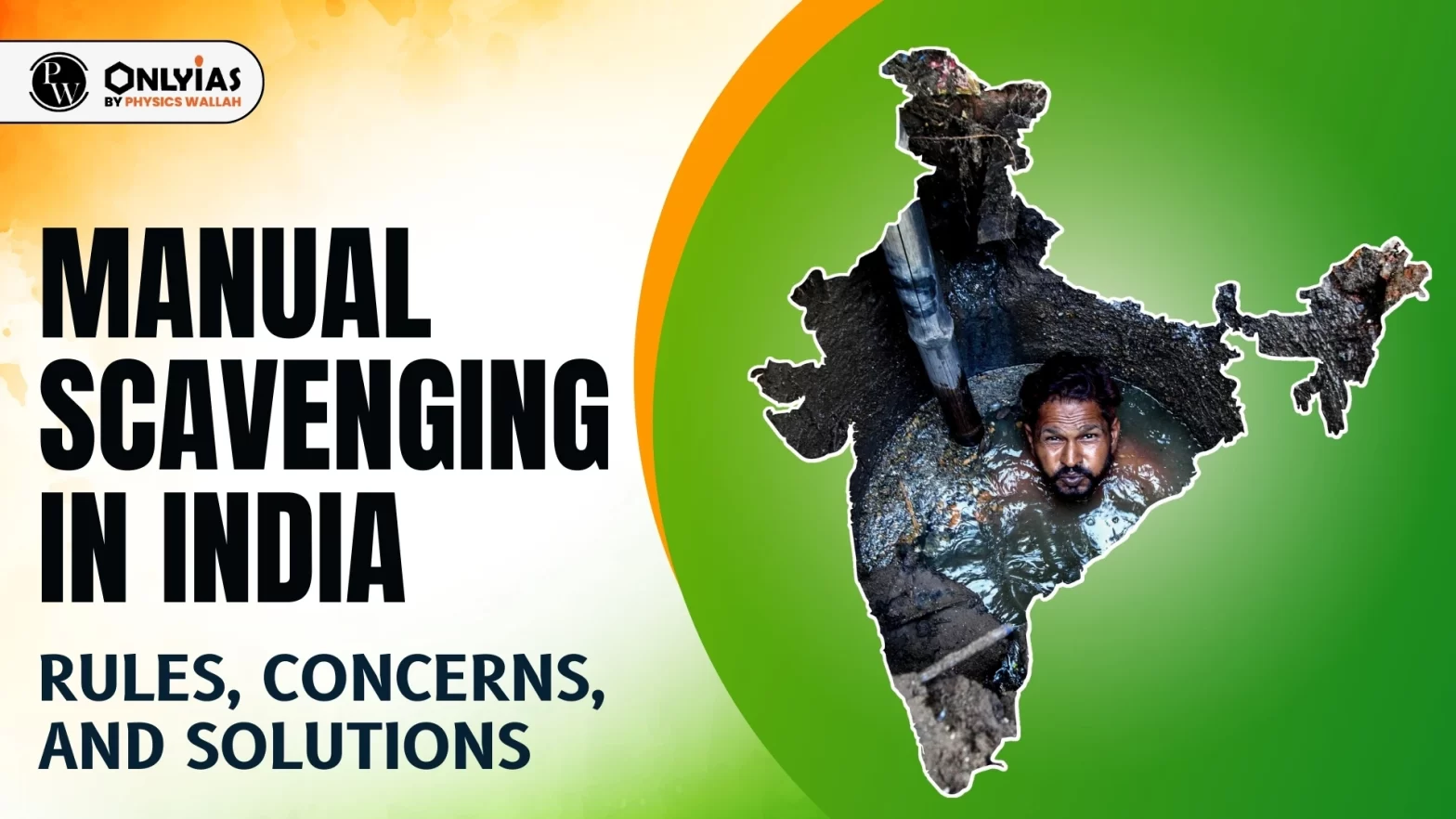Context: This article is based on an Editorial “Murder in the sewer: on deaths during manual cleaning of sewage” which was published in the Hindu. This article discusses the concerns and challenges of Manual Scavenging and the steps that need to be taken.
| Relevancy for Mains: Manual Scavenging in India: Rules, Concerns, Challenges and Way Forward. |
Manual Scavenging in India: Concerns and Rules
- Sewage Cleaning: It involves working with human excreta.
- Manual scavenging is the practice of manually cleaning, handling, and disposing of human excreta and other waste materials from dry latrines, open drains, and sewers.
- It has been officially banned in India since 1993
- Threat to Life and Dignity: It cannot be seen without invoking the concept of dignity of labor. It is a dangerous job too.
- A high number of people have lost their lives while cleaning sewers or septic tanks since 1993.
- In 1993, a law prohibiting employment of manual scavengers was enacted, according to the Social Justice and Empowerment Ministry.
- Violation of Human Rights: To allot the task of removing excreta and cleaning sewers to humans when machines are able to do the work is a gross violation of rights.
- Prevalence even after Prohibition: While manual ‘scavenging’ is completely prohibited, the rules allow manual cleaning, in specific conditions where mechanical equipment cannot be deployed to fix the problem, or when it is absolutely necessary to have human intervention.
- Despite various laws and enforcement, many workers are still engaged in this harmful sewage cleaning practice.
What measures can be implemented to prevent manual scavenging?
- Proper implementation of the Rules.
- Need of adequate Monitoring.
- In need of absolute human intervention, it is necessary to use protective devices and gear.
- Such as air line breathing apparatus, air line respirator, air purifier gas mask, a device for artificial respiration, mask and breathing apparatus.
- Chlorine masks, emergency medical oxygen resuscitator kit, gas monitor for gases, hydraulic devices, and first aid will have to be provided by the employer.
- Regular maintenance of the equipment and devices.
- Not taking measures to prevent such associated deaths would be criminal.
- Since the causes of deaths while cleaning sewers and septic tanks are predictable i.e., due to noxious gases.
Difference between an Act and Rule
- An act is a law or the statute which has been passed by the legislature and approved by the President of India. However, a rule helps in governing law.
|
Conclusion:
The practice of manual scavenging of septic tanks and sewers is a serious concern that should be banned in a strict manner. There is a need for more technology development and implementation in this sector to save the life and dignity of involved persons. All efforts must be taken, within existing schemes, to provide compensation to the family members of those who have died, and to provide them a way out of the profession.
![]() 14 Dec 2023
14 Dec 2023
